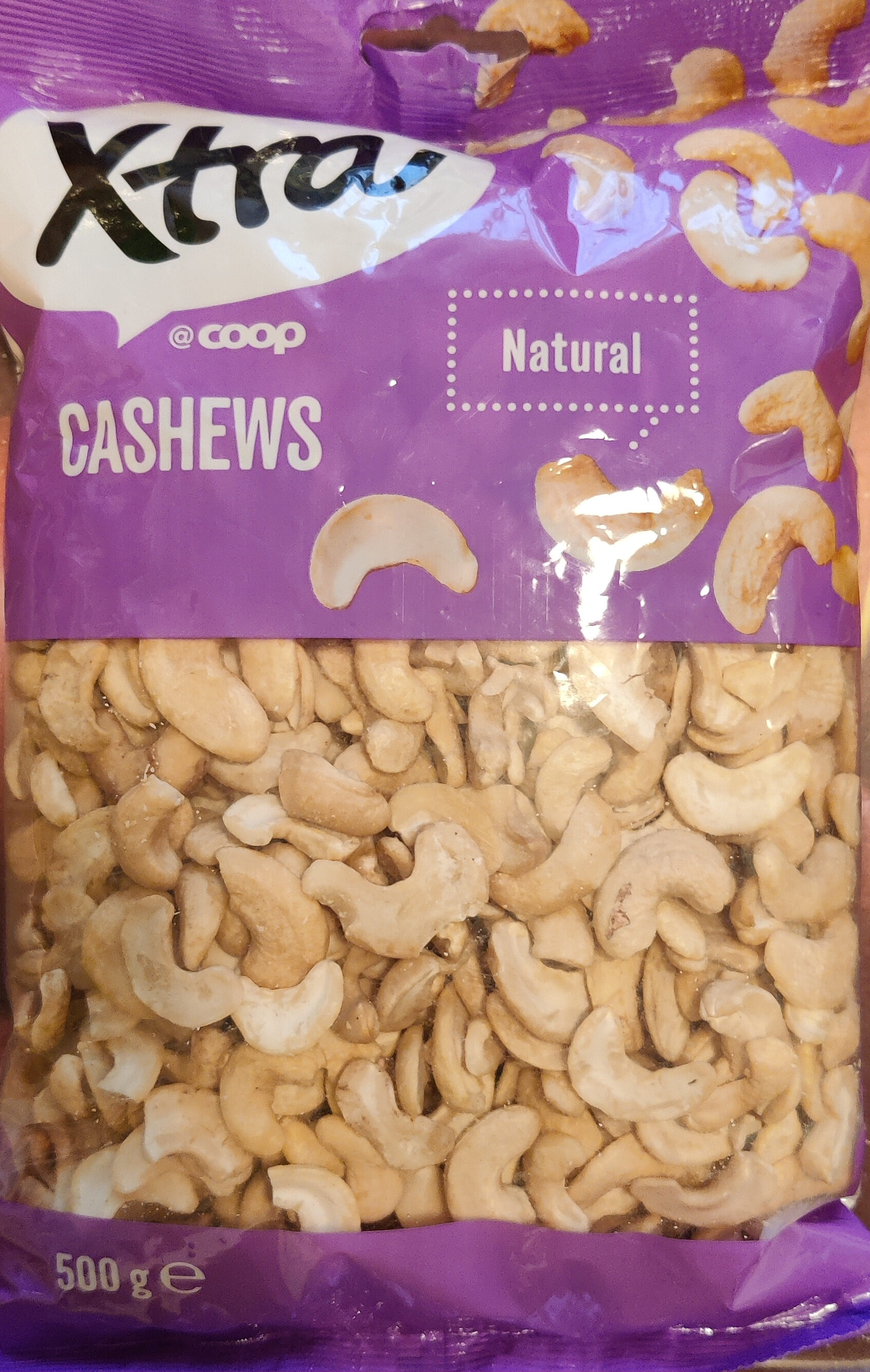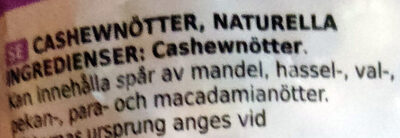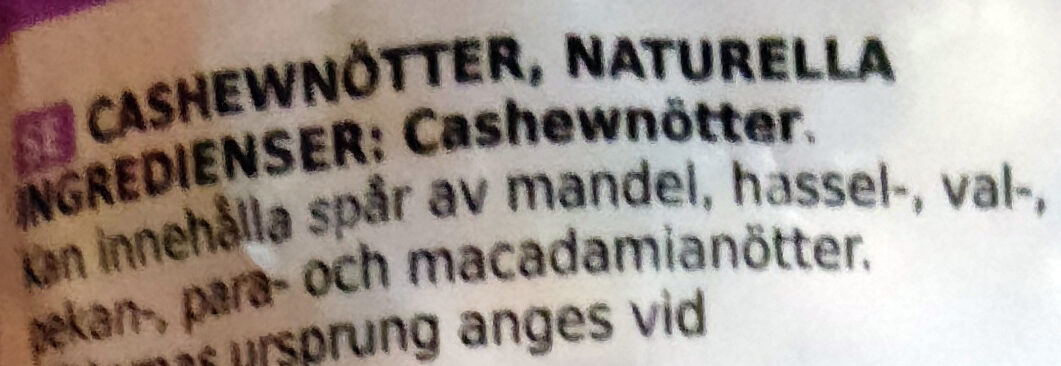Cashews - Coop - 500 g e
Barcode: 7340191122567 (EAN / EAN-13)
Common name: Cashewnötter, naturella.
Quantity: 500 g e
Packaging: Plastic, Other-plastics
Categories: Plant-based foods and beverages, Plant-based foods, Snacks, Nuts and their products, Nuts, Cashew nuts
Origin of ingredients: Vietnam
Manufacturing or processing places: Lithuania, Litauen
Stores: Coop
Countries where sold: Sweden












